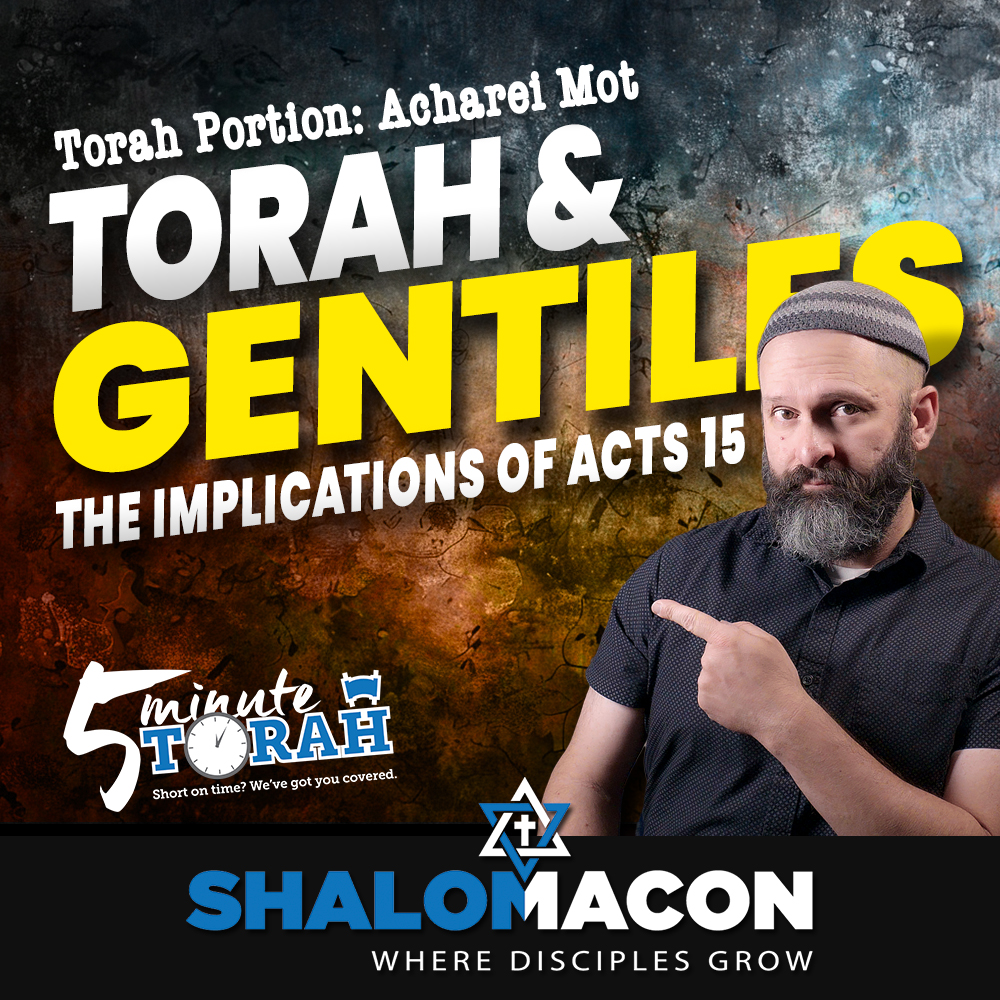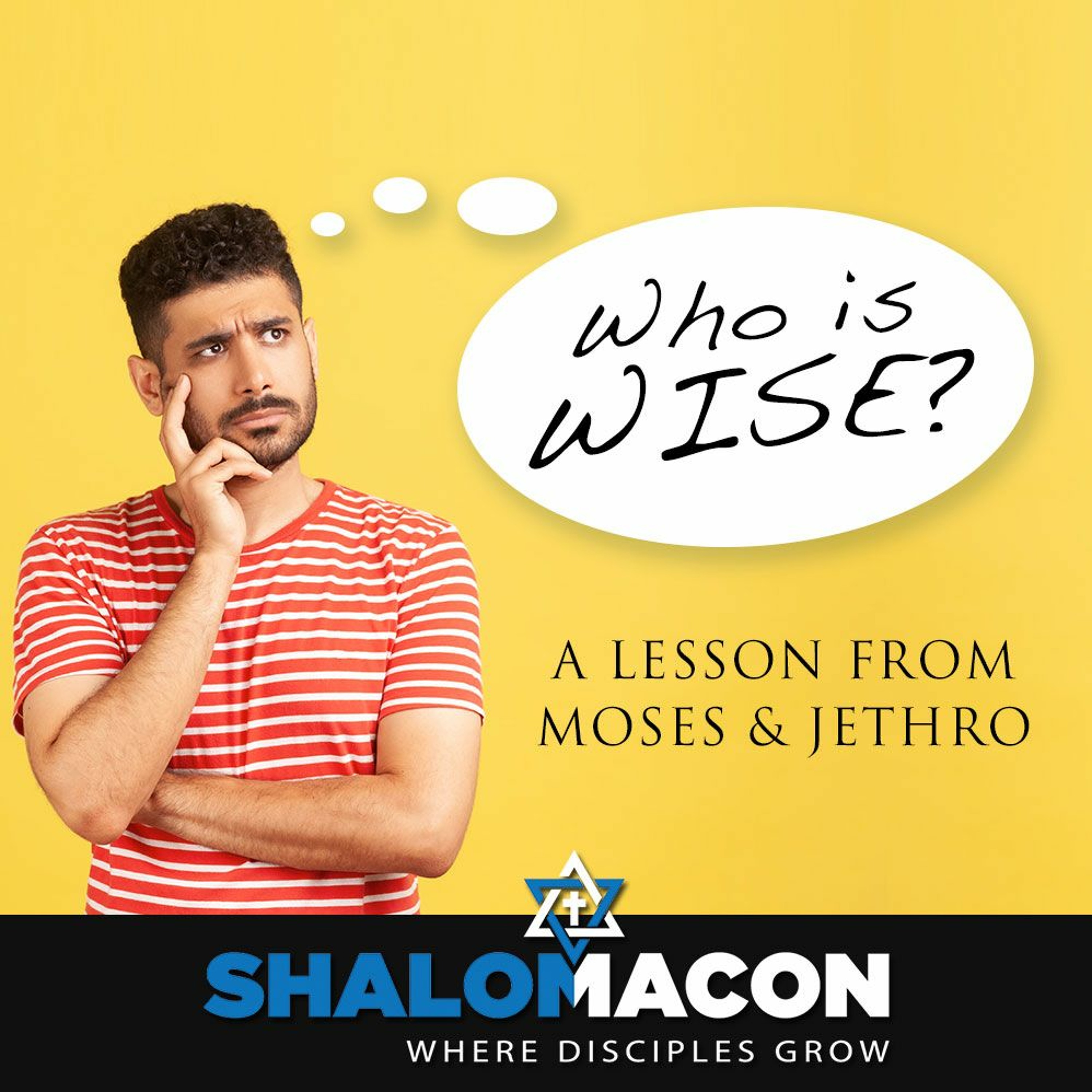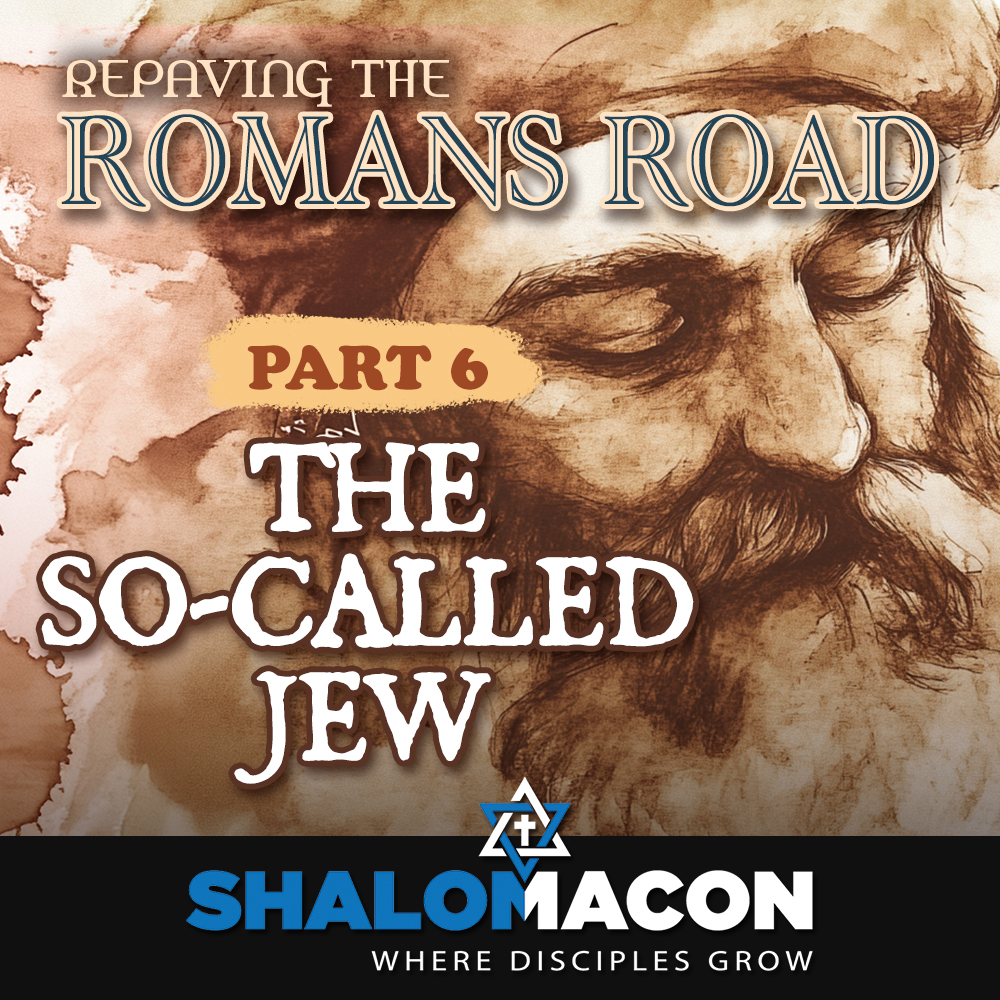[00:00:00] Speaker A: Today, 2000 years removed from the biblical period, we take it for granted that gentiles are part of Gods plan and that they can be accepted by God in spite of not belonging to the bloodline of Abraham, Isaac and Jacob. And unless a person has seriously studied the Judaism of the apostolic era and prior, you really cant understand the magnitude of the decision made by the Jerusalem Council in acts 15. For gentiles, it was the pivotal point for the earliest followers of Yeshua in determining the course and position of Gentiles within the jewish faith practiced by Yeshua and his disciples. But what were some of the practical ramifications of that critical decision? And do they still affect us today? Lets take a look together in this weeks five minute ToRah welcome back Shalomis. Welcome to another episode of the five minute Torah. Before we get into the actual five minutes or so of the five minute Torah, heres a brief overview of this weeks Torah reading this this week we are studying the portion of Ahremot Leviticus 16 118 30 and here are the three things you need to know about it. Number one, Yom Kippur Day of atonement service the Yom Kippur service described in our current Torah portion, is a solemn ritual performed by the high priest to atone for the sins of not only himself and his household, but Israel as a whole. This service takes place in the holy of Holies, the innermost chamber of the tabernacle, or the temple, which the high priest enters only on this day. He first offers a bull as a sin, offering for himself and his family to purify and sanctify them. Then two goats are presented. One is sacrificed to God, and the other, known as the scapegoat, is sent into the wilderness to Azazel. Before releasing the scapegoat, the high priest lays his hands on its head and confesses over it all the iniquities and transgressions of the children of Israel, symbolically transferring their sins to the goat. He also sprinkles the goat of the sacrificed bull and goat inside the holy of holies and on the altar to cleanse it from human impurities and sanctify it from the transgressions of the people. Number two, sacrifice centralization exclusive tabernacle worship the Torah portion Ahremut establishes the tabernacle and later the temple as the exclusive location for conducting animal sacrifices. The Torah explicitly instructs the children of Israel against slaughtering offerings and any other location, such as open fields, a practice that was common in pagan rituals. Instead, they were commanded to bring their offerings to the entrance of the ten, a meeting, the dwelling place of the lord. This directive served multiple purposes. It reinforced the sanctity of the tabernacle. It promoted a unified practice of worship. It distanced the Israelites from idolatrous practices and it was the means by which the Levites and the Kohanim were supported. By centralizing sacrificial rites in the tabernacle. The Torah also also ensured that these rituals were performed under the supervision of the kohanim, maintaining the purity of this worship and number three, sexual purity. Forbidden relationships detailed our Torah portion also includes a detailed list of forbidden sexual relationships, emphasizing the importance of maintaining sexual morality within the israelite community. This section, sometimes referred to as the Holiness Code, specifies various degrees of kinship and other relationships where sexual unions are prohibited. These prohibitions extend to immediate family members, certain in laws, and other close relations, highlighting the need to respect familial boundaries and ensure the sanctity of the family unit. These prohibitions distinguish Israel from the surrounding nations, reinforcing their identity as a holy people dedicated to ethical conduct. In spite of the awkward subject matter, this section is read during the afternoon service on Yom Kippur, reminding Israel of her commitment to purity in all areas of life, particularly those which can at times be the most difficult. If you're looking for a place to learn, connect, and grow, then Shalom Macon is the place. It doesn't matter where you are in the world. You can find a connection with Shalom Macon through our live services every Saturday and through our private social network we call Shalom at home. Check us out on YouTube and on our
[email protected], for more information. We look forward to connecting with you and seeing you this Shabbat. This week's Torah commentary is called the four prohibitions and comments from my book five minute Torah, volume two. After detailing the instructions for the Yom Kippur service, the Torah portion of Akari Mote, and the following portion, Keroshim, hit on a series of seemingly unrelated topics concerning a number of different things. For the contemporary reader, particularly to those of us from among the nations, these strange regulations seem completely out of our realm. Outside of the obvious ethical principles of forbidden sexual relationships, what possible relevance do these seemingly antiquated ritual concerns have for us today? Well, in the days of the apostles, something happened that had never really happened before, especially on the scale that the apostles saw. Because of the message of Yeshua going forth to the nations, particularly due to the ministry of the apostle Paul, gentiles began flocking to Judaism by the droves like never before. Although this was a Yeshua centric form of Judaism, it was nonetheless expressly jewish and found its identity in the Torah, the Holy Temple in Jerusalem, and in the local synagogues. Still, a great number of gentiles had begun attaching themselves to the God of Israel through faith in the Jewish Messiah. Prior to this point in time, gentiles who had come near to the God of Israel were expected to undergo a formal conversion to become jewish in order to complete their journey of faith. After all, how does a person explain that their religion is jewish if they are not? In acts 15, the apostles wrestled through this identity crisis for gentile disciples of Yeshua. Did these gentiles need to fully convert and become jewish in order to become part of this jewish religion or not? They definitely could not remain like they were, because the pagan practices of their previous lives would surely lure them away from the new life they had found in Messiah. In order to find wisdom for the situation, the apostles looked to the Torah. When they got to our current Torah portion, they found a section of the Torah that clarified their understanding of these new disciples who were not jewish. They found a series of passages that were directed toward both the native and the stranger who sojourns among you. They found within these passages a common thread to help the gentile believers find their identity among the children of Israel, and also discovered a baseline of Torah instructions for their inclusions. After much debate, James, the brother of the master and the head of the council of Jerusalem, made a formal declaration to resolve this tension, giving the gentile disciples of Yeshua a list of what appears to be four prohibitions. Therefore, my judgment is that we should not trouble those of the gentiles who turn to God, but should write to them to abstain from the things polluted by idols and from sexual immorality, and from what has been strangled and from blood. For from ancient generations, Moses has in every city those who proclaim him, for he has read every Sabbath in the synagogues. This is acts 15, 1921. Each of the prohibitions placed on these gentile disciples was based on language found in our current Torah portion, binding the one who chooses to cast his lot with Israel to some of the basic standards as their israelite. First, they were to abstain from things polluted by idols. This is alluded to in the prohibition against slaughtering sacrifices outside of the context of the tabernacle or temple. So they shall no more sacrifice their sacrifices to goat demons, after whom they whore any one of the house of Israel, or of the strangers who sojourn among them who offers a burnt offering or sacrifice and does not bring it to the entrance of the tent, a meeting to offer it to the Lord. That man shall be cut off from his people. Leviticus 17 seven nine the next prohibition outlined in acts 15 is to abstain from sexual immorality. Since sexual immorality is a vague term that can include a number of things, the apostles would have relied on the Torahs definition in Leviticus 18 to define the parameters of sexual propriety. The final two prohibitions are actually a single one, expressed in a way that would ensure the disciples understood its scope. It was to abstain from what had been strangled and from blood. Leviticus 17 10 16 details the prohibitions against the consumption of blood for both the native Israelite and the sojourner living among them. In Leviticus 1710, we read, if anyone of the house of Israel or of the strangers who sojourn among them, eats any blood, I will set my face against that person who eats blood and will cut him off from among his people. What about the prohibition against strangled animals? In this same context of abstaining from blood, the Torah declares, and every person who eats what dies of itself or what has been torn by beasts, whether he is a native or a sojourner, shall wash his clothes and bathe himself in water and be unclean until the evening. Then he shall be clean. But if he does not wash them or bathe his flesh, he shall bear his iniquity. Leviticus 17 1516 this passage concerning torn flesh is connected with the previous passages on abstaining from blood. 1 may not eat the meat of an animal that has not been properly slaughtered. In fact, the mishnah uses the same terminology of strangling to refer to improperly slaughtered animals. See Chuline one, two animals that have not been properly slaughtered and do not have the blood drained from them in the traditional method is considered meat that has been strangled and still contains the blood. These were the minimal standard by which gentile followers of Yeshua began their entrance into the community of faith. Have we all but forgotten these foundational principles of our Yeshua centric faith? The apostles thought it important enough to make a formal declaration. Maybe we should consider it important enough to reevaluate our modern lifestyle and how it affects the witness of our faith, the Jewish Messiah. Did you find this episode to be challenging? Does it change anything for you? I would love to hear your thoughts in the comments below. Please drop me a note, and if you're wondering where to go from here, I would like to invite you to join me for a seven week study in a text called Perke Avot. It's traditional to study this text in the weeks between Passover and Shavuot. If you'd like to see how studying Perke Avot helps us understand the teachings of Yeshua, then youll want to check out this seven part series that I did last year called Parake of Oat and the teachings of Yeshua. It will not only give you an introduction to Perkevot, but give you a fresh perspective on Yeshua teachings. You can check it out using the link above or at the end of this video. Ill see you next week for another messianic insight into the eternal Torah of God. Blessings from Shalom Macon, the place where disciples of Yeshua learn, connect, and grow.
[00:11:50] Speaker B: Please visit our website, shalommaken.org, to learn more about us. Join our Live Services access other teachings sign up for our newsletter, join our private network that will connect you with our greater community from around the world or contribute to the work of Shalom Macon. Thank you for watching, and we look forward to connecting with.



